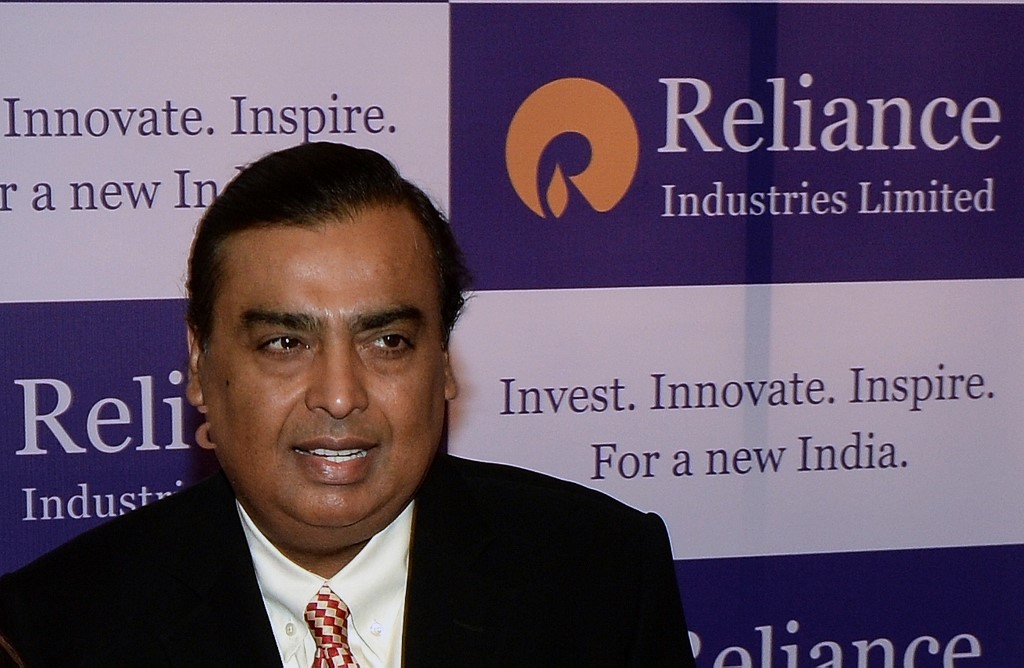After raising more than $20 billion from global investors, including Facebook, for its digital business Jio Platforms, Reliance Industries now thinks India should focus on the brick-and-mortar sector.
Chairman Mukesh Ambani said he envisaged transforming the nation to help smaller businesses and startups pull out of the pandemic-led worst recession in the South Asian nation’s history.
“Just like we have startups in the technology sector, I think India is ripe now to support our small and medium sector entrepreneurs and get them the physical start up,” Ambani said at a book launch.
“We need as much thinking about bricks as we have about clicks.”
Ambani is in the process of changing Reliance Industries’ focus from energy to retail and digital services, attracting more than $25 billion of foreign investment for his “bricks and clicks” venture Reliance Retail in recent months.
A chunk of that money, he said, would be invested in partnering with smaller businesses, startups and mom-and-pop stores to provide last-mile support for Reliance Retail’s “bricks to clicks” expansion.
To boost growth, Ambani said India must redefine its manufacturing sector and push for self-reliance, echoing a common theme of Indian Prime Minister Narendra Modi.
“We just have to rethink and reinvent manufacturing; I would agree that in some areas – like our own refining and petrochemicals, where we are the most globally competitive – the opportunity for us is to embrace the future industries, [and] think in terms of ecosystems,” he said.
Personal Mission
He sees his mission as three-pronged: to improve India’s digital infrastructure, reform its education and skills base and move away from fossil fuels towards renewable energy.
A “digital society incorporates all the future industries, so that the next 30 years of India is 100 times like what we had never imagined,” he said.
India’s education sector caters to 200 million children bit needs radical change, Ambani said.
“It will take eight to 10 years to completely transform the skills base of India,” he said adding that the country has “the formula to convert that magic into reality and establish linkages between academic institutions in the real world with skill training and employment in a way that actually sustains India are much higher quality or better jobs”.
Even as head of one of the world’s largest petrochemical companies, Ambani said he recognised the need to usher in an era of clean energy.
“India is in the right mindset to completely to move away from fossil fuels to renewable energy,” he said.
Ambani’s candid revelations are a clear indication he is moving towards spinning off the digital business and the retailing businesses, according to Reuters.
In keeping with his promise to Silicon Valley investors, this game plan will not only lead to the creation of three listed entities, but also keep Ambani’s family interests aligned.
Divide And Still Rule
Besides, with the three entities valued roughly around $75 billion each, according to analysts, it also points to an easy separation of fiefdoms with valuations in the same ballpark, Reuters said.
In the event of a complete division of the empire, the family’s control would remain intact, as Ambani, his mother, wife, the three children, and his fully owned investment companies would continue to hold 50.4%, or a majority stake.
Meanwhile, Ambani says that India also needs to build an entire ecosystem that delivers future industries and services in a clean brake from the past.
That way “we can create our new destiny in terms of the ecosystem, platforms, and manufacturing, which then becomes a high employment generation piece, and we then have a play not only for our domestic market but all the marginal pieces we can support to the international market,” he said.
“If I can play my small part in achieving this, if I can create institutions to perpetuate and sustain these objectives, then I would have done my bit,” Ambani added.
• Indrajit Basu, with reporting by Reuters
This report was updated on January 9, 2022 for style purposes.
READ MORE:
Reliance Offers India’s Growth Story to Strategic Investors
























